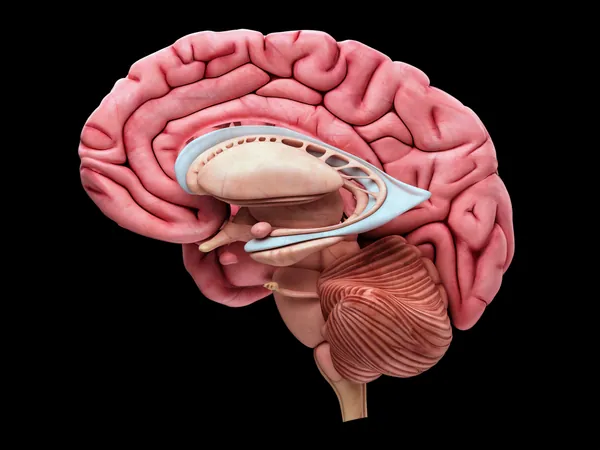
Unlocking the Mysteries of the 'Lizard Brain': How It Influences Our Social Skills
2024-11-23
Author: Siti
Imagine this: You’re at a lively social gathering and as the event winds down, your mind spirals into a whirlwind of thoughts. Did you talk too much? Did you make a comment that may have offended someone? Were your friends truly enjoying your company, or were they just being polite? This stream of anxiety can be overwhelming, but it’s all part of what makes us fundamentally human—our brain's exceptional social cognitive capabilities.
A recent study conducted by Northwestern Medicine delves into this intricate web of thoughts, exploring the evolutionary roots of our social behavior. Researchers indicate that the enhancements in our social cognition may pave the way for innovative therapeutic approaches in psychiatry, potentially aiding individuals battling anxiety and depression—disorders that have become increasingly prevalent in today’s fast-paced world.
The 'Lizard Brain' Connection
We often find ourselves acutely aware of others' emotions and intentions, swirling in self-reflection about our interactions. "What is that person really feeling? Did I offend anyone?" These questions underscore our social cognitive abilities, a relatively recent evolutionary development. This capacity to empathize and make inferences about others' thoughts, even without clear evidence, is a hallmark of human interaction.
The study particularly investigates how these social cognitive networks interact with the amygdala, famously dubbed the “lizard brain.” Traditionally associated with fear and threat detection, the amygdala also plays a key role in social behaviors, such as parenting, mating rituals, and establishing social hierarchies.
A Dance of Ancient and Modern Brain Functions
The researchers identified an ongoing dialogue between the amygdala and the emerging social cognitive network in our brains. They discovered that the medial nucleus of the amygdala, which governs social functions, has critical connections with the newly evolved regions responsible for interpreting emotions and intentions. This link influences how we process social cues, shaping our reactions in complex social environments.
Utilizing cutting-edge functional magnetic resonance imaging (fMRI), which allows scientists to map brain activity with remarkable precision, the researchers were able to unveil intricate details about these connections, revealing how closely knit our emotional and social processing systems truly are.
The Evolutionary Implications of Social Cognition
Understanding the symbiotic relationship between the amygdala and the social cognitive network not only unravels the evolutionary story of our brains but also shines a light on how we navigate the complexities of human interaction. This interplay represents a significant adaptation that has enabled humans to form intricate social bonds—a crucial aspect of our survival and success as a species.
The ability to join instinctive reactions with higher-level cognitive processing allows humans to thrive within intricate social landscapes, fostering cooperation, empathy, and creative thinking. Such traits are vital for the elaborate societal structures that define human civilization, suggesting that our social intelligence is a key factor in our evolutionary success.
A New Hope for Treating Anxiety and Depression
Central to both anxiety and depression is often an overactive amygdala, which can lead to heightened emotional responses and difficulties in emotional regulation. Traditional invasive treatments, such as deep brain stimulation, target this area directly, but a shift may be on the horizon. With the insights gained from this study, less invasive techniques like transcranial magnetic stimulation (TMS) could offer new treatment options by indirectly targeting the amygdala through its connected areas, presenting a more comfortable pathway for patients.
Does this research signify a new dawn for alleviating the emotional burdens endured by countless individuals? Only time will tell. Nevertheless, studies like this propel us closer to understanding our minds, our emotional landscapes, and the shared humanity that binds us all.
So, the next time you leave a gathering and are met with a flood of second-guessing thoughts about your interactions, consider it a product of your evolved brain at work. And perhaps, this advanced cognitive trait could serve as a beacon of hope for many who wrestle with their emotional well-being.
The findings from this enlightening study, titled "The human social cognitive network contains multiple regions within the amygdala," have been published in the prestigious journal Science Advances, further enriching our understanding of the complex mechanisms that govern human interaction.




 Brasil (PT)
Brasil (PT)
 Canada (EN)
Canada (EN)
 Chile (ES)
Chile (ES)
 España (ES)
España (ES)
 France (FR)
France (FR)
 Hong Kong (EN)
Hong Kong (EN)
 Italia (IT)
Italia (IT)
 日本 (JA)
日本 (JA)
 Magyarország (HU)
Magyarország (HU)
 Norge (NO)
Norge (NO)
 Polska (PL)
Polska (PL)
 Schweiz (DE)
Schweiz (DE)
 Singapore (EN)
Singapore (EN)
 Sverige (SV)
Sverige (SV)
 Suomi (FI)
Suomi (FI)
 Türkiye (TR)
Türkiye (TR)